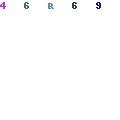SIUE welcomes Al-Hardan to speak on Palestinian refugees, Syrian war
Palestinian scholar Anaheed Al-Hardan visited SIUE last week to discuss the impact the war in Syria has had on Palestinians.

Anaheed Al-Hardan speaks to students and faculty Thursday afternoon at her lecture, "The Palestinians in Syria and the Syrian War." Photo by Kari Williams
Al-Hardan, a postdoctoral fellow at the Institute for Cultural Inquiry in Berlin, Germany, gave two presentations Oct. 17 – “What is the Nakba?” and “The Palestinians in Syria and the Syrian War.” Al-Hardan said the significance of speaking about Syria on an American college campus is because of U.S. involvement with the current war in Syria, in which there was recent talk of the U.S. bombing the Syria in a military strike.
“I think Americans need to know that and need to be aware of what’s happening to their tax dollars and what kind of wars these tax dollars may be funding and what kind of groups these tax dollars may be funding and so forth,” Al-Hardan said.
The Nakba, according to Al-Hardan, occurred in 1948 when Palestinians were expelled from their home country due to the Arab-Israeli war. She said many Palestinians went to Lebanon, a “small minority” to Iraq and others to Syria.
Syria allowed Palestinians social and economic integration and to retain their nationality, according to Al-Hardan, who also said many of the Palestinians who arrived in Syria came from northern Palestine. “Geography played a very big role in this,” Al-Hardan said.
Many Palestinian refugees, according to Al-Hardan, had to “build their lives from zero” once leaving their home countries, and the Red Cross took care of refugees when the refugees arrived in Palestine. The United Nations Relief and Works Agency for Palestine Refugees, was established to assist in providing healthcare and relief shortly after Palestinian refugees arrived in Syria.
Refugees received rights – with the exception of voting – alongside Syrian citizens in 1956, Al-Hardan said, so long as they were already in the country when the law was passed.
The 63rd anniversary of the Nakba coincided with the spring 2011 March of Return, in which Palestinians attempted to return to their native country, according to Al-Hardan. She also said the return pushed Israeli uprisings into the spotlight and Israel was quick to blame the regime. Israel, according to Al-Hardan, used live weapons on the unarmed.
She said Syria might have allowed the opportunity for the march, but it “was the refugees who ultimately marched.” Because Palestinians were integrated demographically, they became involved in the uprising as soon as it began.
Al-Hardan went on to discuss how the events affected Palestinian refugee camps and refugee status for Palestinians outside of Syria, in addition to answering questions from the audience.
Political Science Department Chair Denise DeGarmo said Al-Hardan’s presentations were an “open and honest evaluation” of the Nakba and its repercussions, and provided an “interesting view of looking at the Syrian war for not just being about Syria, but also involving refugees.”
Overall, Al-Hardan said she felt that both of her presentations went well.
“I was happy with the turnout, and I was happy with the questions, and I’m very happy to be here and meet everyone and see your campus,” Al-Hardan said.
Al-Hardan came to SIUE as part of a fellowship program funded by the Palestinian American Research Center, which is located in Washington, D.C. The fellowship, according to Al-Hardan, “funds Palestinian scholars to go around American campuses and to speak on their research.”
Filed Under: Uncategorized












